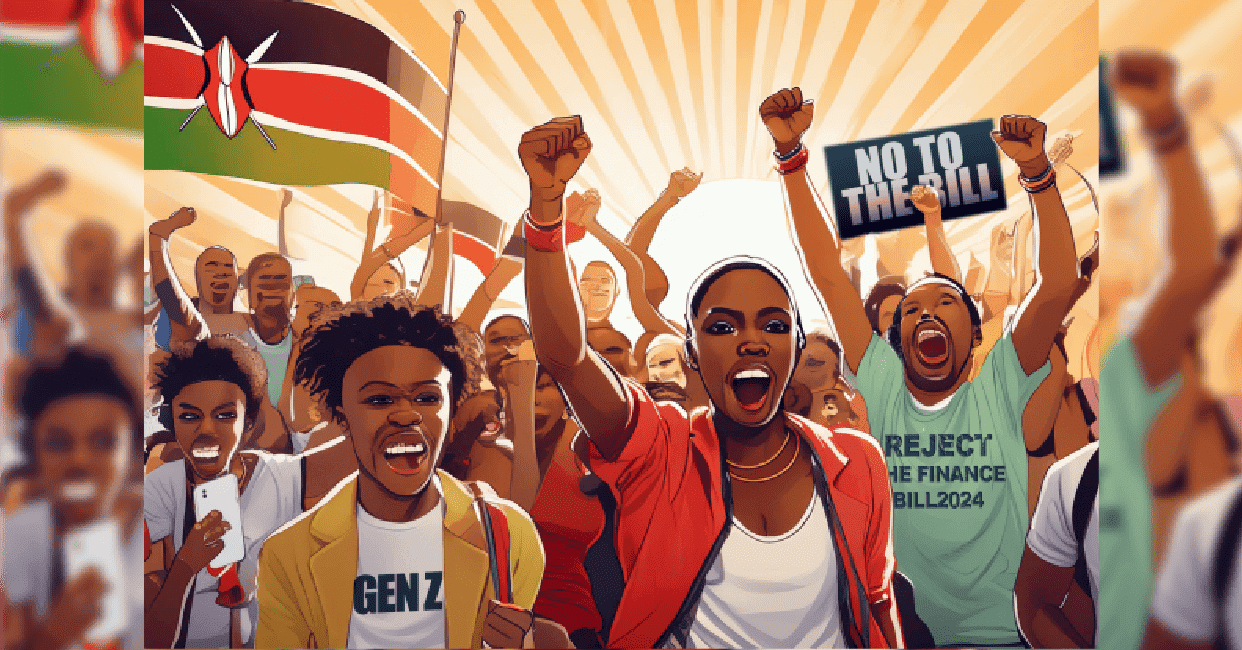Kenya’s Digital Revolution: Gen Z Leads Tech-Driven Protest Against Finance Bill

Khadija S.

6 minutes

In June 2024, Kenya witnessed a unique surge of youth activism centered around the controversial Finance Bill 2024. Sparked by discontent with proposed tax measures, Generation Z Kenyans leveraged social media platforms and innovative tactics to challenge the legislation.
The movement began on TikTok and Twitter/X, where young Kenyans voiced their frustrations. Gaining momentum across social media, the campaign employed creative hashtags (#OccupyParliament, #RejectFinanceBill2024) and utilized AI-generated protest songs to spread awareness. Explainer videos generated by GPT models offered clear breakdowns of the bill's intricacies.
The movement's digital prowess was further demonstrated by crowdsourcing a list of MPs' phone numbers. This resulted in a targeted message bombardment, highlighting the reach and organization of the online movement. Transitioning to physical protests, Nairobi's Central Business District became the scene of large gatherings. Unlike traditional demonstrations, these protests were characterized by smartphone use, live streaming, and a strategic social media presence.
The decentralized nature of the movement presented a challenge for authorities. Faced with forceful opposition from police using tear gas and water cannons, the protestors' resolve remained strong, with some even continuing activism from custody via social media.
The government initially responded by withdrawing some contentious tax proposals. However, protestors demanded a complete rejection of the Finance Bill, before the president finally acquiesced. The movement experienced a tragic turn with the loss of lives, including Rex Kanyike Masai and Evans Kiratu, who became symbols of the resistance. Social media responded with #RIPRex and #JusticeForRex hashtags.
In a display of national solidarity, local businesses and religious institutions like Jamia Mosque provided shelter and medical aid to protestors. The online community rallied as well, raising over 29 million Kenyan shillings to support the victims' families. However, the rapid spread of information also presented challenges, as misinformation became a concern.
The success of the #RejectFinanceBill2024 movement underscores the growing political influence of Kenya's youth. This tech-driven protest signifies a new era of civic engagement, where digital tools are used alongside traditional methods to advocate for change. The events of June 2024 serve as a pivotal moment in Kenya's political landscape, potentially shaping the future of political discourse and action in the country and beyond.














